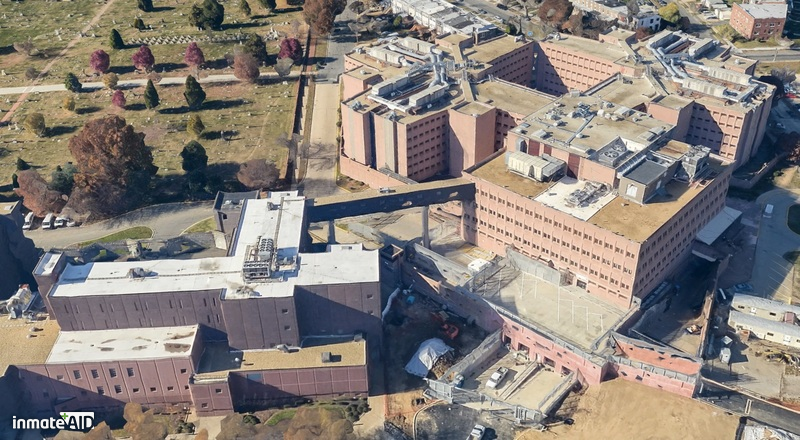Thank you for trying AMP!
You got lucky! We have no ad to show to you!
Connect with an Inmate
Central Detention Facility (CDF/DC Jail)
City Jail
DC DOC - Central Detention is for City Jail offenders sentenced up to twenty four months.
All prisons and jails have Security or Custody levels depending on the inmate’s classification, sentence, and criminal history. Please review the rules and regulations for City Jail - medium facility.
The phone carrier is Global Tel Link (GTL) - ConnectNetwork, to see their rates and best-calling plans for your inmate to call you.
If you are unsure of your inmate's location, you can search and locate your inmate by typing in their last name, first name or first initial, and/or the offender ID number to get their accurate information immediately Registered Offenders
You can support your loved ones at DC DOC - Central Detention on InmateAid, if you have any immediate questions contact the facility directly at 202-673-7316.
The DC DOC - Central Detention serves as a low/medium-security city detention center located at 1901 D St, SE in Washington, DC. Operated locally by the police and sheriff's departments, it houses inmates and detainees awaiting trial or sentencing. Most sentenced inmates have terms of less than two years. The facility also accepts inmates from surrounding towns and occasionally from the US Marshal's Service.
New detainees are regularly admitted to the jail, with some being released on bail or placed under pretrial services caseloads. Others may be supervised by probation agencies or released on recognizance with a court appearance agreement. Those who remain in custody await their court appearances at the facility, receiving accommodations such as bedding and meals.
For access to arrest records in District of Columbia, you can view them here.
The Central Detention Facility (CDF/DC Jail) is located in Southeast DC at 1901 D Street, SE. The current facility was opened in 1976. The DC Jail is a correctional facility that houses pre-trial offenders, sentenced misdemeanants and convicted felons awaiting transfer to the Federal Bureau of Prisons.
The majority of male inmates (females are housed at the Correctional Treatment Facility) housed in the Central Detention Facility are awaiting adjudication of cases or are sentenced for misdemeanor offenses. As a result of the National Capital Revitalization and Self-Government Improvement Act of 1997, sentenced felons are transferred to the Federal Bureau of Prisons.
The Department offers a variety of programs to inmates housed at the DC Jail. These programs include: HIV/ AIDS Prevention, Education and Intervention Services; Individual and Group Counseling Services; Hispanic Life Skills; Book Club; Street Law; Literacy Education; Religious Services; Mental Health Adjustment; and Anger Management, among other life skills development and religious services.
Correctional Treatment Facility
The Correctional Treatment Facility (CTF), originally constructed by the District of Columbia, Department of Corrections, was activated in May 1992 as a specialized medium security institution. The eight-story structure stands on 10.2 acres next to the Central Detention Facility off 19th and D Streets, SE, in Washington, DC.
The Correctional Treatment Facility consists of five separate, multi-story buildings that are situated immediately adjacent to each other, presenting the appearance of one large structure. The facility design provides for the security perimeter. Each building contains separate areas for administration, programs, housing and services that allow the facility to function as a whole. Every room has a window and each unit has at least one television room, a multi-purpose room and access to a recreation yard. Housing units within CTF range from 16 to 48 cells with a maximum capacity of 96 beds per unit.
Halfway Houses
The DC Department of Corrections contracts with several community release programs who operate facilities known as community correctional centers or halfway houses. The agency has contracts with three private and independently operated halfway houses: Extended House, Inc., Fairview and Hope Village. The US District Court for DC and the Superior Court of DC place pretrial offenders and sentenced misdemeanants in halfway houses as an alternative to incarceration. The halfway houses offer a variety of educational opportunities and other programming services that include the following:
- Case Management
- Employment Assistance/Job Readiness
- Individual and Group Counseling
- Substance Abuse Intervention in-house NA/AA Meetings/Referrals
- Academic Tutoring
- GED Preparation
- Basic Life Skills
- Family Planning
- Peer Association
- Financial Assistance
- Health Issues
- Interpersonal Communication/Socialization Skills
- Stress/Anger Management
- AIDS/HIV Awareness
- Bible Study/Prison Fellowship (provided by volunteers)
- Social Services Assistance/Referrals









